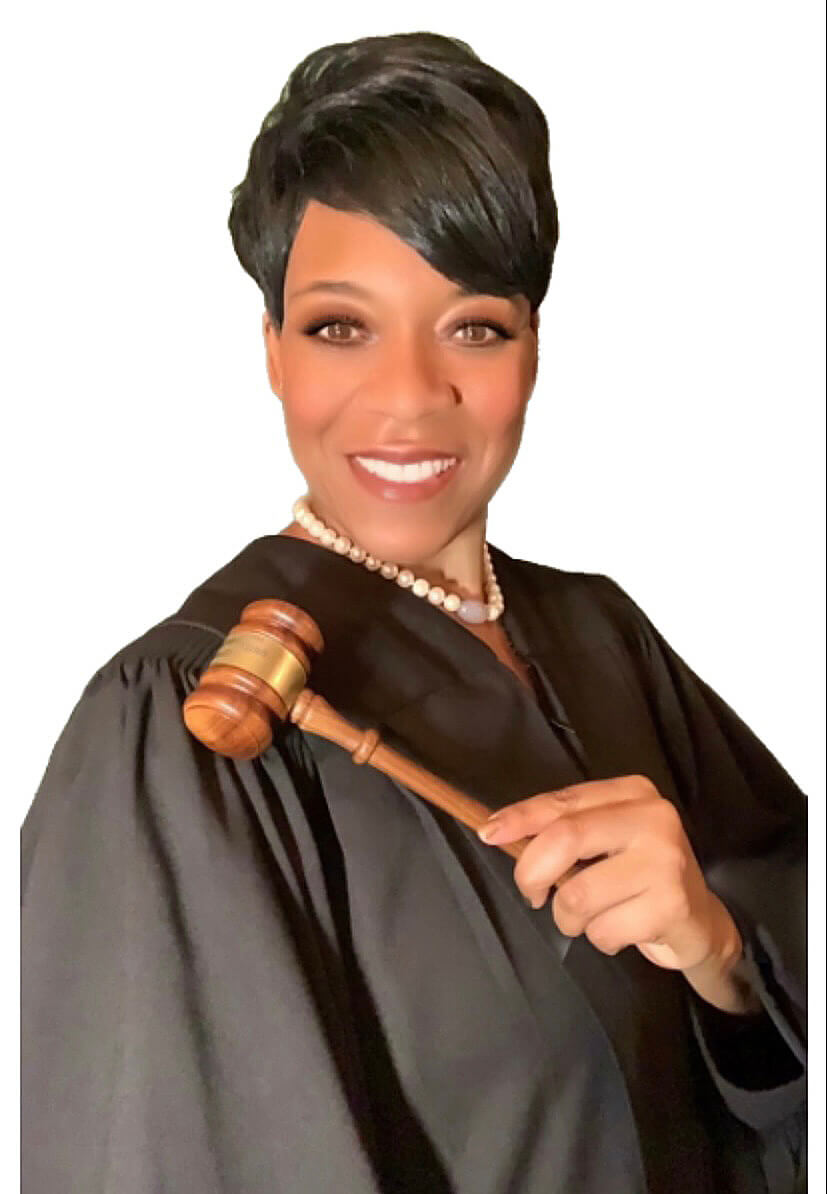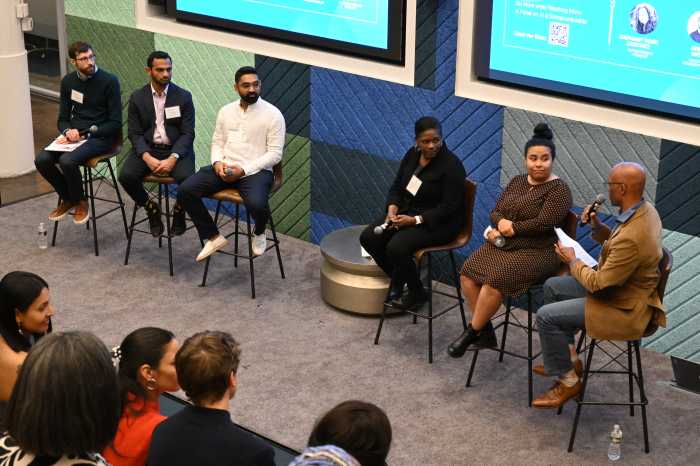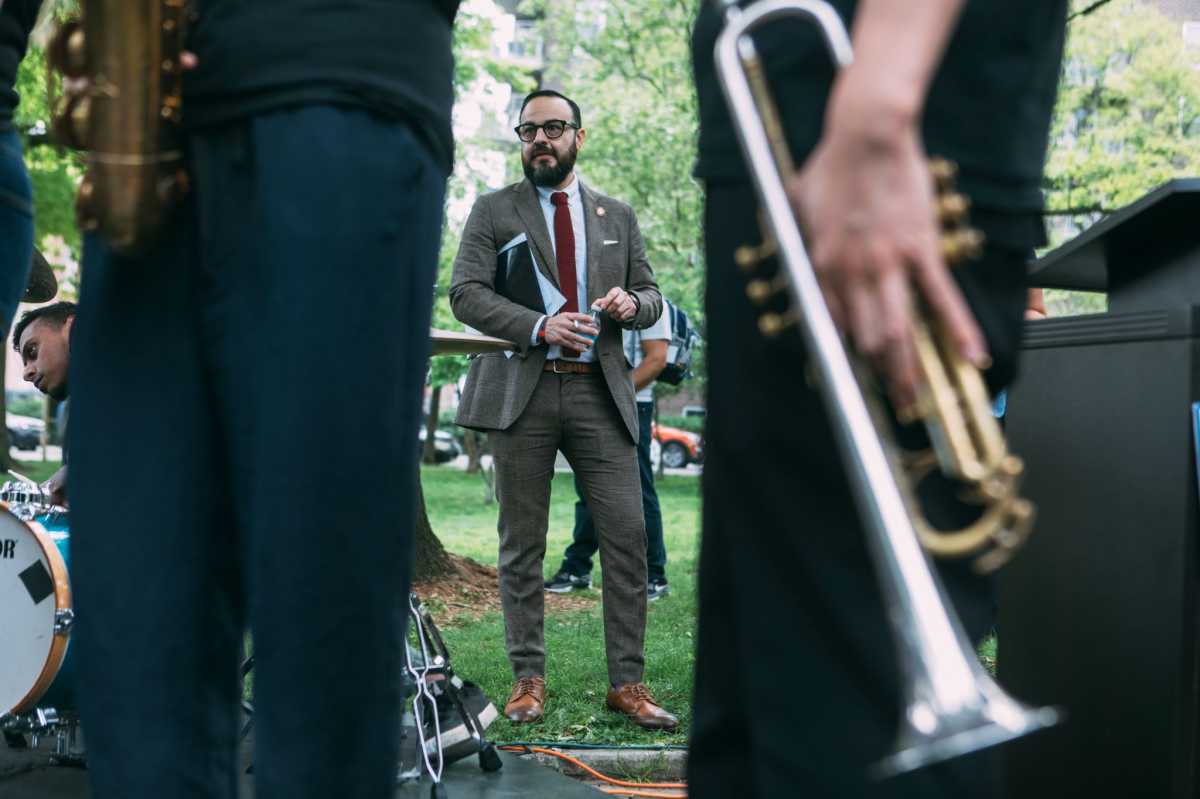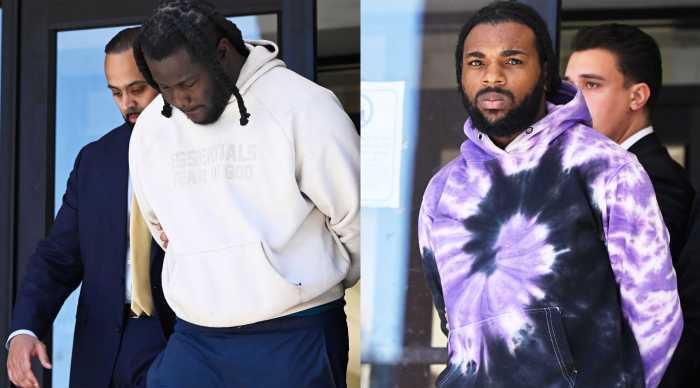Caribbean American J. Machelle Sweeting is a trailblazing acting Supreme Court jurist in the New York State Supreme Court.
Justice Sweeting — a Harlem resident, whose father hailed from The Bahamas — is the only legal practitioner admitted to practice law in both the federal and state courts in New York; Washington, DC; the United States Court of Appeals for the 2nd and 4th Circuits; the United States Supreme Court; and the Commonwealth of the Bahamas.
Notably, in 2016, long before the global COVID-19 pandemic upended the court system and, indeed, the world, Justice Sweeting presided over the nation’s first ever state-wide “Remote Access” Court, which allowed litigants to appear before the court via SKYPE.
Justice Sweeting herself, who had suffered and won a hard-fought battle with COVID-19 in March 2020 is a strong proponent of technology and its use as a tool in expanding access to justice and the court system.
She has authored a three-part, published series on the virtues and challenges of remote court proceedings.
In the article, she highlights some of the many benefits, which include decreased court wait times and travel costs; fewer disruptions to school, work and child care; expanded public access and greater access to persons with disabilities; as well as the reduced cost of litigation.
In part one of the series, Justice Sweeting writes that most attorneys bill at a higher rate for time spent in court than out of court.
“The virtual appointment system reduces the number of hours waiting in court which, in turn, results in savings,” she says. “The ability for expert and out-of-state witnesses to testify remotely also eliminates the cost and expense for their travel.
“Because virtual court requires documents to be uploaded electronically, the cost of paper and having to mail, photocopy and reproduce voluminous records is drastically reduced,” she adds. “Even more importantly, people no longer have to travel to the courthouse to access files, but can, instead, access some records on-line at any time.”
While Justice Sweeting said she is mindful of the challenges imposed by remote proceedings, she contended that they are greatly outweighed by the benefits.
Justice Sweeting currently presides over a high-volume City-Part that handles cases alleging civil liability against the municipality, its agencies and employees.
She also presides over criminal court arraignments and hospital hearings to determine medical release or continued treatment over objection.
Immediately prior to this assignment, Justice Sweeting was the Presiding Judge in the Harlem Community Justice Center (HCJC), where she managed court operations; developed a strategic plan; integrated innovative problem solving; and adjudicated cases involving inter-related actions of housing, civil and family matters.
Justice Sweeting was uniquely qualified for this position, given her vast experience in the New York County Family Court where, for five years, she served with distinction as one of the only African American female judges in New York County.
She said she presided over cases involving the “most complex and intimate disputes” over custody, visitation, child abuse and neglect, domestic violence, guardianship, juvenile delinquency and cases involving undocumented persons, under age of 21, seeking Special Immigrant Juvenile Status, in the United States.
Judge Sweeting completed her undergraduate studies at Davidson College in North Carolina, where she majored in US History.
She received her law degree from Rutgers University in Newark, NJ and the Eugene Dupuch Law School/University of the West Indies in the Bahamas.
She also studied law at the University of London and the University of Exeter in the United Kingdom; and at the University of Zimbabwe and the University of Botswana in Africa.
As such, Judge Sweeting said she is “intimately familiar” with foreign affairs, government relations and the laws of the United States, the Bahamas, as well as other countries.
Even more globally, in 2019, Judge Sweeting, together with the Association of Black Women Attorneys and the Institute of International Affairs, led a US delegation of women judges and lawyers on a pilgrimage to Ghana, Africa, where she spoke on the theme of “reinforcing bonds and connecting with the Diaspora.”
Judge Sweeting said she delivered the address on behalf of the US delegation before members of the Ghanian legal profession and dignitaries, including Ghana’s Attorney General.
She has also joined US delegations in Jamaica and Haiti, where she presented on important immigration topics, such as the Deferred Action Plan and the Dream Act and their impact on Caribbean nationals.
Prior to ascending to the bench, Justice Sweeting served as an Assistant District Attorney in the Brooklyn District Attorney’s Office.
Like us Vice President Kamala Harris, Sweeting said she took “great pride in upholding the rule of law and representing ‘The People’ of the State of New York.”
Justice Sweeting said this experience is particularly relevant in her dream of one day serving as a US ambassador and advancing the “shared objective of both the US and the Bahamas in protecting the borders against the importation of illegal drugs, human trafficking (especially of women and children) and illegal migration.”
Justice Sweeting also served as an Assistant Corporation Counsel, where she was one of the founding attorneys of the Special Federal Litigation Division, which was created to handle police brutality cases.
Also prior to her judgeship, she served as one of only two Special Referees in the Supreme Court Matrimonial Division in Brooklyn; an Administrative Law Judge; a Law Clerk to a Supreme Court and Appellate Justice; and as an Adjunct Law Professor.
Justice Sweeting attributes her love for public service and her global perspective to both of her parents.
Her late father, William Sweeting, was a school teacher and police officer in the Bahamas, and was twice elected chairman of Harlem’s Community Board 10.
Justice Sweeting’s mother, a native Harlemite, had, several times, run for elected office and has spent decades on the forefront championing the advancement of important civil rights causes, such as education, economic development, affordable housing and child care, pay equity, gender fairness, and quality health care.
Although born in the US, Justice Sweeting said her mother, too, has “deep Caribbean roots,” in that her father was from the Turks and Caicos Islands and grew up in the Parish of Trelawny in Jamaica.
Justice Sweeting holds leadership positions in several local, state and national organizations, including but not limited to: National Action Network (Member Emeritus of Legal Nights); NAACP (life member, former 2nd vice president, executive committee member, and chair of Religious Affairs); Caribbean American Lawyers Association (executive board member); National Bar Association (vice president of the Law and Religion Section); Family Court Judges’ Associations of New York City and State; the Association of Black Women Attorneys; the Bahamas Bar Association; and Delta Sigma Theta Sorority, Inc.
Justice Sweeting is the recipient of many awards and is particularly honored to have been selected as a marshal at the 50th African American Day Parade, which is the last time the parade was held in-person.
More importantly, Justice Sweeting said she is a “dedicated mentor to a countless number of students” and is “committed to building a successful pipeline for persons interested in pursuing a career in law.”
She regularly welcomes visitors to her courtroom, including virtually, “to observe the inner-workings of our judicial system and to empower them with information about their rights and responsibilities as citizens.”
Justice Sweeting is a highly regarded motivational speaker. She said her “words of encouragement continue to inspire a new generation of civic-minded community leaders to pursue a career in law.”
In addition, Justice Sweeting is a woman of faith. She was recently ordained as a chaplain for the National Judicial Council of Judges.

























